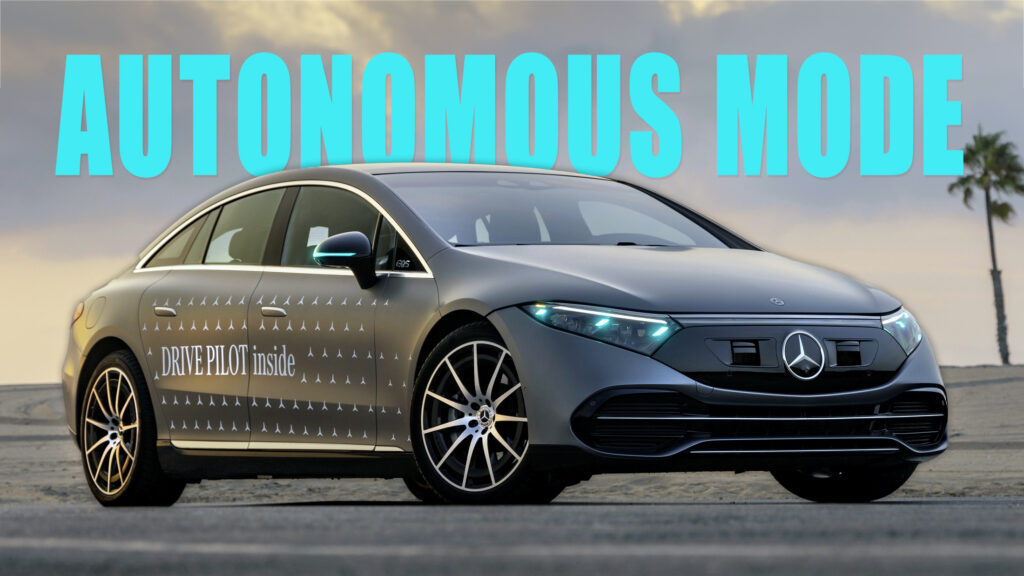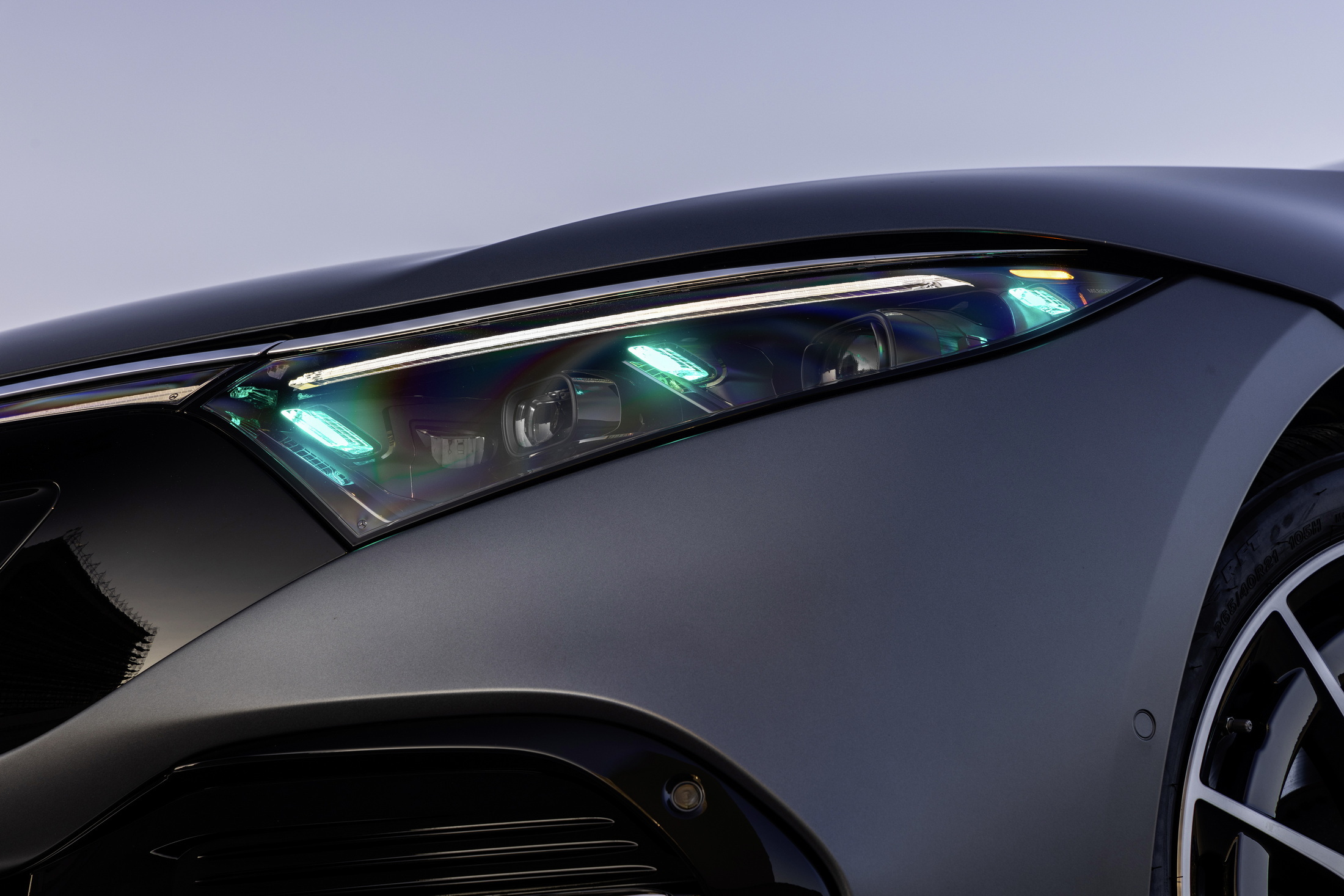Mercedes has become the first automaker on earth to receive approval to add turquoise lights to its vehicles for the purposes of warning nearby road users that they are driving autonomously. It will begin testing the lights in California and Nevada.
Earlier this year, Mercedes became the first automaker to offer American drivers Level 3 autonomous technology through its Drive Pilot mode. Like other advance driver assistance systems, the feature allows drivers to take their hands off the wheel. However, in an industry first, it is capable enough to allow drivers to also take their eyes off the road, as well, though they must be ready to take control of the wheel at any moment, so they can’t take a nap, for instance.
Now, to alert other drivers on the highway that a vehicle is in autonomous mode, Mercedes is testing special marker lights. The automaker says it chose turquoise because it isn’t already in use by other vehicles, such as emergency vehicles. It also claims that the color is highly visible, and distinct from other light colors already in use on passenger vehicles.
Read: Mercedes Offers Level 3 Autonomous Tech Subscription For $2,500 Per Year In The U.S.

The lights will be located at the front and rear, as well as on the side mirrors of vehicles equipped with Drive Pilot, to be as visible as possible. The feature will also quickly alert authorities, such as police, to the fact that the driver is allowed to be reading a book or engaging in another activity that would otherwise be considered distracting.
Mercedes says that it wants turquoise lights to become the industry standard for autonomous vehicles, and believes that it could be used around the world, since the color is not currently being used for another purpose in major markets, such as the U.S., Europe, or China.
“With the development of automated driving marker lights, Mercedes-Benz is once again setting new industry standards,” said Markus Schafer, Mercedes’ CTO. “The more automated driving vehicles populate the road, the more important communication and interaction between the vehicle and the environment become.”













